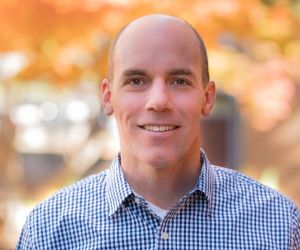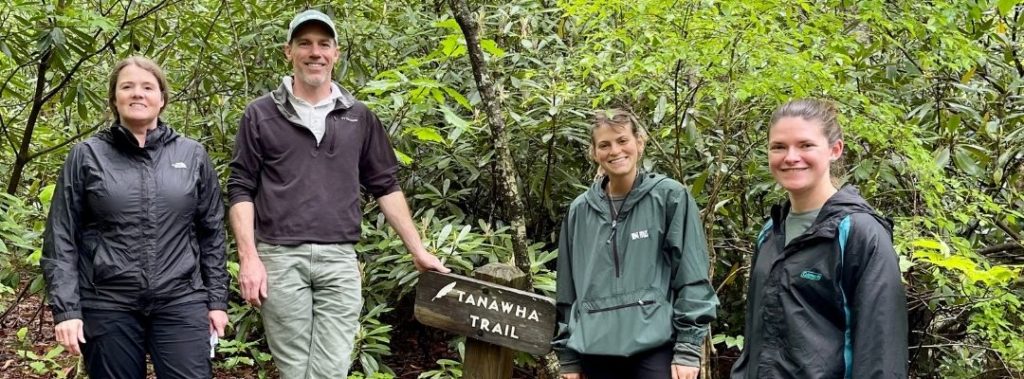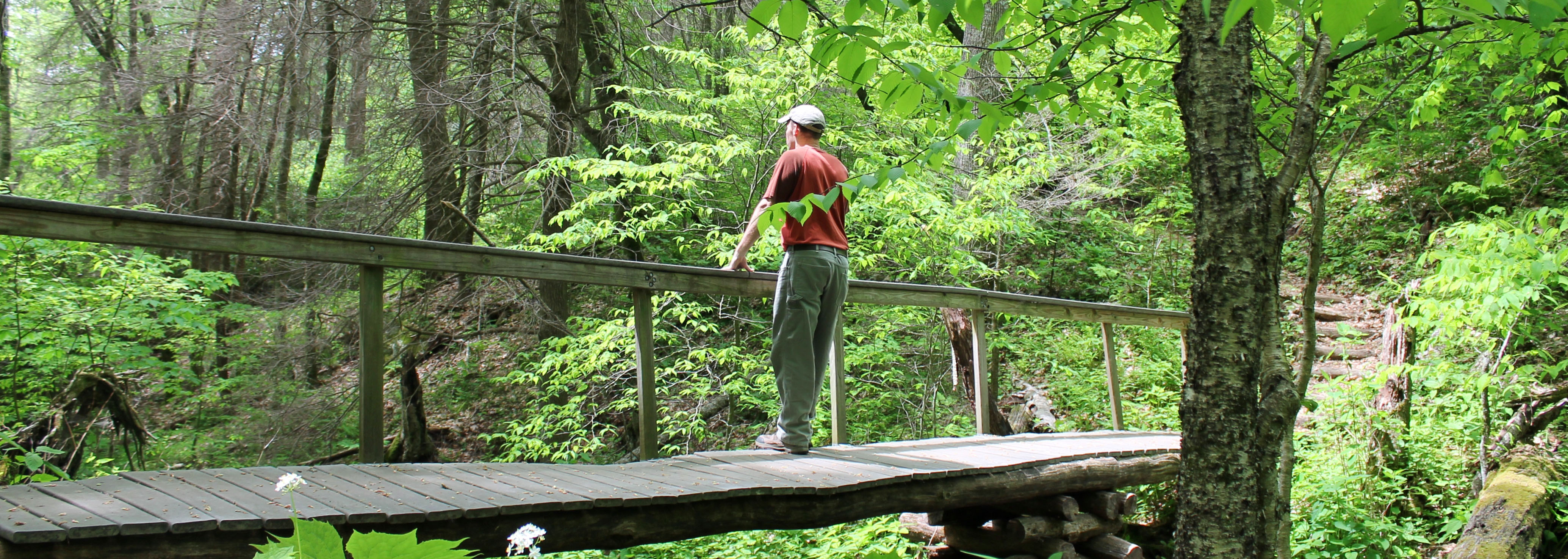
Rusty Painter’s Master of Environmental Management from the Nicholas School of the Environment at Duke University wasn’t the end of his connection to the school and the future of climate protection. He returns each year to present to classes on a variety of topics, from CTNC’s strategic approach to address climate change and more. “I’m motivated by my son and future generations, from whom we are all ‘borrowing’ this planet.”
His background and his master’s degree in forestry are invaluable as Land Protection Director for CTNC. Rusty joined the CTNC family in 2001. He oversees CTNC’s land protection efforts along the Blue Ridge Parkway and our collaborative partnerships with local land trusts. Recent successes include the preservation of the Florence Boyd Home / Asutsi Trailhead Property, and the Cranberry Creek Expansion project, both of which will be transferred to the Blue Ridge Parkway.

When did you first realize the real and present impacts of climate change?
The concept of global warming due to the greenhouse effect made sense to me the first time I heard about it, but I guess I really grasped the severity of the problem when Al Gore’s book An Inconvenient Truth came out. What a shame that our political, social and economic systems continued to drive us down this path. Think how much progress could have been made over the last 30 years had we committed to solving the problem back then.
What does climate resilience mean to you?
Adaptation using a combination of evolution and technology – applying our experience, and projections based on sound science to adapt to our changing climate. We must realize that adaptation isn’t the only path forward. Humans must commit themselves to actions that will minimize the need to adapt, or the extent to which we must adapt.
How have you seen climate change impact North Carolina?
One example that I struggle with in my work at CTNC is the expansion of tick habitat. I never used to get ticks while visiting our conservation properties along the Blue Ridge Parkway, but climatic shifts have enabled ticks to colonize areas that were previously too cold, so I’m now getting ticks while out on properties in the mountains. Yuck!
What are actions that organizations in NC can take right now to make our state more resilient?
Conserve energy. Simply using less results in immediate reductions of carbon emissions and has the potential to save far more resources (of all kinds) than our slow, incremental conversion to renewable energy sources. I challenge everyone to consider every action they take throughout the day and do it with half of what they currently use. You’ll find it’s not as difficult as you think. That approach can be applied to most organizations, corporations and government agencies as well. Once ingrained in our psyche, daily routines, organizational procedures, and subsequently, our infrastructure, carbon neutrality on a timeline that will make a difference becomes legitimately achievable.
What’s one thing everyone should know about climate action?
It’s up to all of us to change our mindset and daily routines, but also to support groups doing good work, and electing leaders committed to making the difficult decisions & changes we must make.
Working in climate resilience can be overwhelming. How do you keep going?
I remain optimistic because of the resilience of the human spirit and advancements in technology. Organisms change and adapt…daily, yearly, and over generations. Humans have evolved to the point where we can adapt naturally, like other species, but also use technology to ‘artificially’ adapt. I just hope society is willing to change sooner rather than later, so future generations don’t have to rely on artificial adaptations that will diminish our connection to the natural world.
If you have questions about how CTNC’s land protection enhances climate resilience, contact Rusty to start a conversation.

